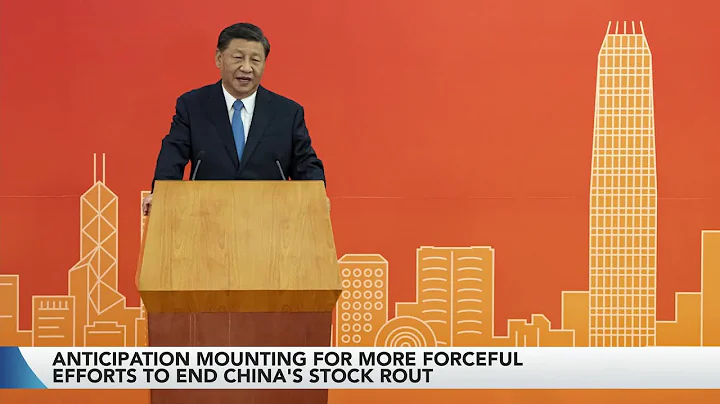summary: Yide Futures analyst Chen Tong told a reporter from " China Times " that crude oil still maintains a bullish trend. Although the financial market is trading recession logic, the trading recession does not mean that the real economy is in a recession cycle. It is a fact that global economic growth is slowing down, but based on the definition of recession, that is, negative quarter-on-quarter growth for two consecutive quarters, the United States will enter recession in the first quarter of next year at the earliest.

China Times (www.chinatimes.net.cn) reporter Ye Qing reported from Beijing
International crude oil prices fell sharply again on June 22. As of 17:07 on June 22, Beijing time, U.S. crude oil August futures plummeted by $5.25 per barrel, or 4.82%, and temporarily closed at $104.24 per barrel; Brent crude oil 8 futures fell by $4.46, or 3.99% , provisionally reported at US$107.31/barrel. From June 14 to June 22, the price of U.S. crude oil has fallen by US$15/barrel in seven trading days, a decrease of 10.29%.
It is understood that as the United States grapples with soaring gasoline prices and inflation, U.S. President Biden called for the suspension of the federal gasoline tax of 18.4 cents per gallon. Futures market trader Li Xin told a China Times reporter that the news of the suspension of gasoline taxes triggered a correction in crude oil. At the same time, central banks in various countries have implemented tightening policies, which has further aroused market concerns about a global economic recession, which naturally puts huge downward pressure on oil prices.
Biden calls on the United States to suspend the imposition of gasoline taxes
In the face of high inflation, Goldman Sachs Group recently released a report showing that due to inflation and the Russia-Ukraine conflict leading to macroeconomic weakness, the U.S. economy has a 30% chance of falling into recession in 2023. , higher than the 15% previously predicted; the cumulative probability of a U.S. economic recession in the next two years is 48%, higher than the previously estimated 35%.
Citigroup An economist also said that as supply shocks continue to push up inflation and depress economic growth, central banks are tightening monetary policies, demand for goods is weakening, and the possibility of the world economy falling into recession is close to 50%. In addition, as central banks of various countries significantly raise interest rates, they will squeeze market liquidity. The corporate sector will withdraw from investment due to reduced capital, and investment costs are also rising. This will force companies to be more selective in their investments as they move away from the “helicopter money” environment. Ultimately, aggregate business demand will fall significantly, and therefore crude oil demand will fall significantly.
Regarding the sharp drop in international oil prices on June 22, Chen Tong, an analyst at Yide Futures, told a reporter from China Times that, in fact, international oil prices have been falling since last Friday. Generally speaking, today’s correction in oil prices is still related to the economy. Uncertain expectations are related. After all, the Federal Reserve announced a 75 basis point interest rate hike. This is the single largest interest rate hike since 1994, showing the urgency of controlling inflation.
At the same time, in the context of the Federal Reserve raising interest rates , major investment banks have lowered their global economic growth forecasts and believe that many economies will be difficult to avoid recession, and the financial market has entered a recession trading logic, US stocks , industrial metals and crude oil Risk assets were sold off. In terms of micro supply and demand, the United States has relaxed its economic sanctions against Venezuela . After two years, Venezuelan crude oil can once again be exported to Europe.
In response to the continued rise in inflation caused by the sharp rise in oil prices in the past, US President Biden is pushing to suspend the federal gasoline tax in the country, with plans to be finalized this week. The White House issued a statement on June 22 saying that Biden called on Congress to agree to suspend the federal gasoline tax for three months until the end of September to "provide the American people with breathing space."
However, in the face of Biden’s recent statements on oil prices and oil companies, Michael Wirth, CEO of US crude oil giant Chevron , recently publicly wrote to the US president and said: The White House is trying to criticize and sometimes even denigrate the crude oil industry. These actions will not help address the challenges we face; lowering fuel prices will require a change in the way things are done in the White House and an honest dialogue between the government and oil companies.
Everbright Futures Energy and Chemical Director Zhong Meiyan told a reporter from the China Times that there have been new changes in geopolitical news recently. Among them, Biden has repeatedly criticized oil companies for being greedy and promoted measures such as mandatory production quotas, windfall profit taxes, and setting price ceilings. It is intended to curb the current high prices of refined oil products.
At the same time, recent news shows that Russian crude oil production is recovering, and the three major institutions have raised their forecasts for Russian oil supply. The impact on crude oil and refined oil exports is less than expected, with exports falling or lower than expected. Russian Deputy Prime Minister Alexander Novak recently stated that despite Western sanctions reducing Russia's oil exports to Europe, Russian oil exports increased by 12% in the first five months of 2022 due to continued strong demand.
As the world's largest crude oil importer, China's crude oil imports from Russia surged 55% in May from the same period last year, reaching a record level. This enabled Russia to replace Saudi Arabia as China's largest crude oil supplier, while China It has become the fourth largest buyer of Urals, after India, the Netherlands and Italy.
India is also buying low-priced Russian oil. Official data released by India last weekend showed that India imported US$2.22 billion of Russian crude oil from May 27 to June 15, compared with only US$70.53 million in the same period last year, a year-on-year increase of more than 30 times. The supply side of
may have a larger-than-expected increase, putting pressure on oil prices. Zhong Meiyan said that from the perspective of crude oil supply, the logic of tension is still the degree to which Russian energy is sanctioned. OPEC has limited overall remaining production capacity, and the degree of fulfillment is also subject to the level of production fulfillment. However, after Western countries imposed sanctions on Russian energy, this supply was diverted to the Chinese and Indian markets, resulting in a tilt in the import structure.
Institutions still maintain a bullish trend on crude oil
It is understood that US President Biden will make his first visit to Saudi Arabia on July 15. This move has attracted market attention.
Biden's repair of relations with Saudi Arabia may further increase OPEC production, triggering rising market expectations for an increase in production. The Secretary-General of the International Energy Forum recently stated that only oil-producing countries such as Saudi Arabia and the United Arab Emirates can increase oil production. They have approximately 2 million barrels of idle production capacity. The current production increase plan expires in August, and OPEC may increase production by then.
At the same time, according to a research report released by the U.S. Energy Information Group, Iraq Deputy Prime Minister Ali Allawi said that Iraq may increase its crude oil production capacity to 6 million barrels per day in the next five years. Iraq is OPEC's second-largest oil producer, but has struggled to increase output in order to comply with a production increase agreement signed by OPEC last year.
According to OPEC's latest monthly oil market report, Iraq's daily output in May was about 4.4 million barrels, down from 4.426 million barrels in April. Before the pandemic slashed demand and prompted OPEC and its partners to slash production, Iraq was producing about 4.5 million barrels per day.
Zhong Meiyan told a reporter from the China Times that OPEC+ is currently increasing production to make up for the supply gap caused by Russia's sanctions, but the total increase is slow. The variable that has the greatest impact on the crude oil market now is Iran . If the Iranian nuclear negotiations go smoothly, the crude oil supply gap will be narrowed, but judging from the current situation, it is difficult to see a substantial improvement. Therefore, the market is paying attention to whether the OPEC+ meeting at the end of June will continue the decision to restrict production cuts. Once the production cut agreement is ended, market expectations may lead prices to fall further.
In addition, after three years of epidemic, although the global refining capacity has declined as a whole, the refining capacity of some regions has increased, especially the refining capacity of the Middle East and the Middle East has grown rapidly. According to the latest reports, Saudi Arabia, Kuwait , Oman and Iraq are increasing refining capacity, with a total daily output of more than 1 million barrels. Based on these new production capacities, the average daily crude oil processing volume of Middle East refiners next year may reach 8.8 million barrels. about.
Saudi Arabia is expanding its Jizan refinery and plans to increase its diesel production to more than 200,000 barrels per day starting in the first quarter of 2023.Kuwait is also building new projects. The Al-Zour refinery was originally expected to start in early 2022, but is currently facing delays; this $16 billion facility will become one of the largest refining facilities in the Middle East after it is put into operation, with a production capacity of 61.5 Thousands of barrels/day.
For a long time, the focus of the crude oil market has been tight supply. Therefore, Société Générale predicts that crude oil prices may continue to rise: With insufficient investment in the crude oil industry and demand returning to normal, we expect oil prices to remain high, It was US$130/barrel in the third quarter and US$120/barrel in the fourth quarter. There is an upward risk to US$150/barrel.
Chen Tong also said that the bullish trend for crude oil is still maintained. Although the financial market is trading recession logic, the trading recession does not mean that the real economy is in a recession cycle. It is a fact that global economic growth is slowing down, but based on the definition of recession, which is negative GDP growth for two consecutive quarters, the United States will enter recession in the first quarter of next year at the earliest.
"In addition, unlike industrial finance, which has strong cyclical attributes and is highly sensitive to economic cycles , crude oil has high transportation demand, which smoothes the cyclical characteristics and makes crude oil relatively weak in its sensitivity to the economy. This will also Weakening the reflection of oil prices on the economic cycle. At the same time, with the substantial implementation of EU sanctions, Russian oil supply is expected to decline significantly. Under the baseline scenario, there will be a supply gap of more than 1 million barrels per day in the oil market in the second half of the year. There is still a certain distance from a real recession, and with supply and demand in the oil market still tight, crude oil will remain a relatively strong commodity among all commodities," Chen Tong said.





















